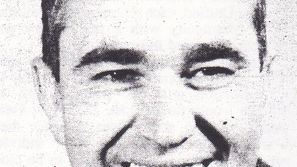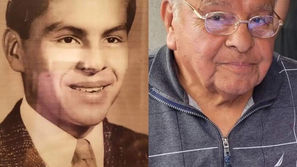Ambassador’s death brought tragedy
- Bill Coate
- Jan 19, 2019
- 4 min read

Madera County Historical Society When Frederick Hassaurek, American diplomat to France, died in 1885, his wife came back to America and moved to Madera County, with tragic results.
The month of May in 1882, could not have been more exciting for the Widow Madison. She had just married one of the country’s most eligible bachelors, Mr. Frederick Hassaurek, former United States Minister to Ecuador, and a rising star within the Department of State. The new Mrs. Hassaurek was looking forward to the life of ease and refinement that would have been hers if only she had been able to remain in the East instead of coming to Madera.
Frederick Hassaurek was born in Austria in 1832, and came to America seeking his fortune after the revolutions of 1848. He found it in politics, and before the age of 30, he was chosen to be a delegate to the National Republican Convention as a firm supporter of Abraham Lincoln. When Lincoln won the election of 1860, he appointed Hassaurek to the diplomatic corps as United States Minister to Ecuador. After Lincoln’s assassination, Hassaurek continued his service in the State Department.
In the summer of 1882, the Hassaurek’s sailed for France where he was to be stationed. Life in Paris seemed to agree with them both until he developed a growth on his shoulder. The doctors tried to remove the cancer, but they were unsuccessful, and he died on October 3, 1885. Mrs. Hassaurek brought her husband back to the United States for burial and then went into mourning.
Friends began to worry about her well being, as she grew irritable and quite tired of her social obligations. She longed for privacy, if not isolation, so somebody suggested that she visit her brother, Jim Morris, in California.
The sister had not seen her brother since he moved to what is now Madera County, and when Morris learned of her situation, he insisted that she join him in the Golden State, at a place called Bates Station, near the Wide Awake Ranch.
So the woman left the East with all of its refinement and came to live something of a frontier existence with her brother. Through it all, however, she remained a lady of splendid attainment--scrupulously honest, and was always in control, even as her garters and stockings went up in smoke.
Upon her arrival at Bates Station, Mrs. Hassaurek purchased a thousand acres and began farming with her brother. She enjoyed the slow pace of life in this county and would no doubt have lived to enjoy it a lot longer had it not been for that confounded coal oil lantern.
On the night of June 1, 1891, Mrs. Hassaurek and her brother had a houseguest. They had just purchased a harvester and the equipment salesman, C.F. Clark, was showing Morris how to use it.
At about nine o’clock p.m. the two men returned to the house where they enjoyed one of Mrs. Hassaurek’s sumptuous meals. Clark excused himself shortly after dinner, reminding his hosts that he required a wake-up call early the next morning. He had other appointments to keep.
Morris assured Clark that he would roust him out in plenty of time, and Mrs. Hassaurek insisted that the salesman not leave without telling her good-bye. As Clark was retiring, he heard Mrs. Hassaurek call to her brother to assist her in extinguishing the lights in the coal oil lamps. She grabbed the big lamp from its stand and proceeded to put out that light first. With lips pursed at the top of the glass chimney, she blew down towards the wick. That was her first mistake. The lamp exploded and showered her with flaming oil!.
With clothes ablaze, she made her second mistake; she ran into the dining room in search of something with which she could smother the flames. She grabbed the tablecloth, but this only added to the problem. It quickly caught fire and deepened Mrs. Hassaurek’s predicament.
By this time, Clark had rushed out from his room to the scene of the disaster. What he saw was horrific. Mrs. Hassaurek was completely enveloped in flames, which licked at the ceiling.
The poor woman managed to scream out a plea to her brother to bring her a blanket, but by the time he had returned, all the clothing had burned from his sister’s body, and pieces of skin as large as one’s hand dropped on the floor. Nothing remained on the woman but her stockings and garters, and these were ablaze as well.
Finally Morris and Clark extinguished the flames and managed to get the woman to her bedroom. Making her as comfortable as possible, the two men rushed back downstairs to fight the flames that threatened the house. When the fire had been extinguished, they hurriedly returned to Mrs. Hassaurek’s bedside. They found her still conscious and in complete control of herself.
She told the men that she knew that death had to be coming soon, and she was right. By 10 the next morning, the pitiful creature mercifully died, but without ever losing consciousness or her composure.
While she was engulfed in flames, she never panicked. As her burning clothes scorched her body, she remained calm. Even as she lay dying in her bed, she was fully alert. In the face of excruciating pain, Mrs. Hassaurek became a monument to that stoic acceptance of danger and death that so characterized life on the American frontier.
It’s just a tragedy that she ever came to Madera County.


























Comments